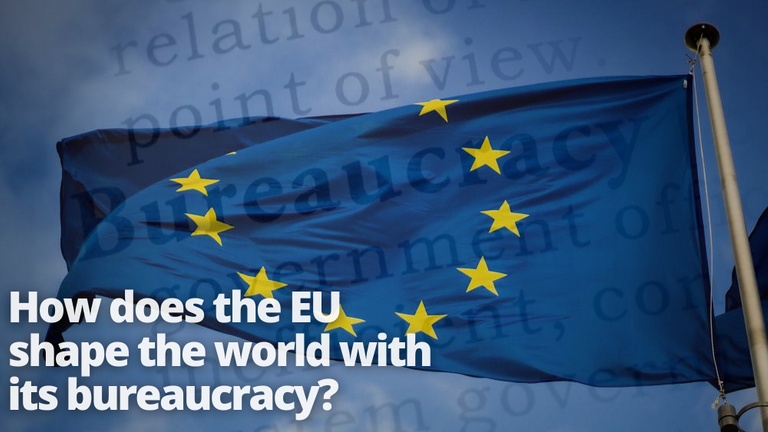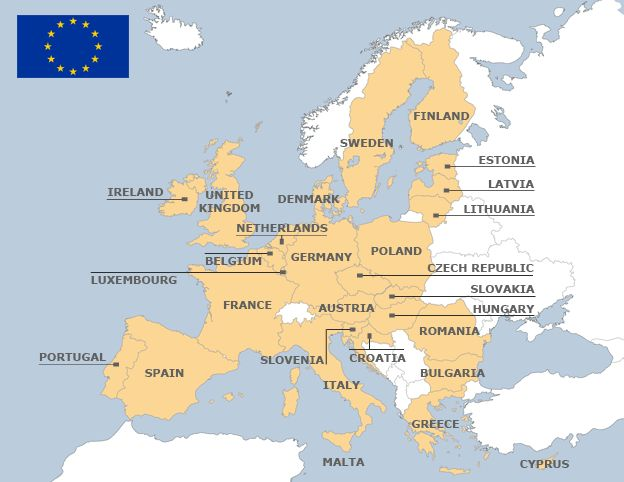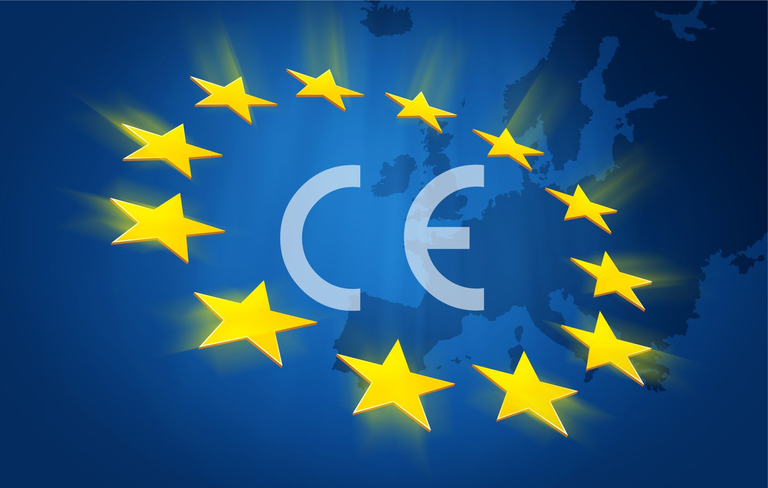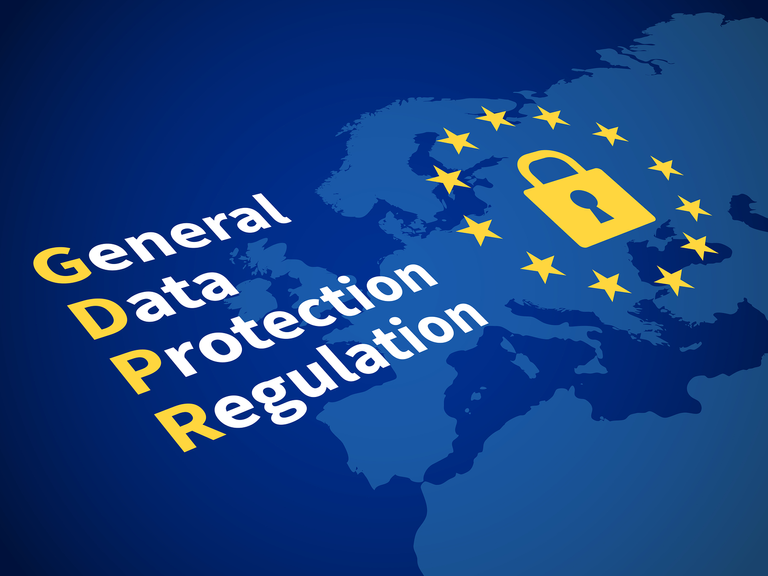
These days, the EU is often portrayed as a declining power, full of stuffy but ineffective bureaucrats, with neither the economic might of China nor the military might of the US. There is, however, one sense in which the EU is a true superpower; it's a regulatory superpower. The EU is unique in its ability to unilaterally transform global markets, be it through its ability to set standards in competition policy, food safety, or the protection of data privacy. EU regulations affect the food we eat, the products we produce and consume, and even the air we breathe. So in today's article we'll be looking at how the EU rules the world through regulation, otherwise known as the Brussels effect.
So first things first, let's explain the term "the Brussels effect." It was first coined in 2012 by professor Anu Bradford of Columbia Law School. The premise is that because the EU has one of the largest and wealthiest consumer markets in the world, many international companies want to do business with the European single market and its member states. These companies conclude that it's in their interest to adopt EU regulations because they want to avoid the cost of complying with multiple different regulatory regimes in different places. EU rules are often seen as the gold standard; all the EU needs to do is regulate the single market. It's then the global companies and their market incentives that end up transplanting these European regulations across the world. Professor Bradford's research concludes that the EU regulations influence the everyday lives of individuals around the world in four key areas: number one, market competition; number two, the digital economy; number three, consumer health; and number four, the environment.

You might be wondering what this actually means in real terms. Well, let's run through them one by one, starting with market competition. The EU competition law was adopted in 1957 as part of the founding treaties of the EU. Article 101 of the Treaties on the Functioning of the European Union expressly prohibits anticompetitive agreements between firms. Such prohibited agreements include, for example, price fixing cartels between competing firms or distribution agreements in which suppliers dictate prices to their distributors. Article 102 of the TFEU prohibits the abuse of a dominant position. Let's take the example of Google, which was fined three times in the space of three years by the EU.
In 2017, the EU commission fined Google 2.3 billion dollars after concluding that the company manipulated its search results to favor its own comparison shopping service to the detriment of its rivals. In 2018, the European commission fined Google 5 billion dollars for breaching EU antitrust rules. Google designed a system whereby traffic on android devices went straight to the Google search engine. The commission's third case against Google was for 1.7 billion dollars in 2019 due to the company's AdSense online advertising program. Google abused its market dominance by preventing its rivals from placing their search adverts on certain websites. In the end, Google had to face the fines and comply with EU competition law. The EU is an important market for many multinational companies and they cannot afford to refuse to sell their products and services to a large number of relatively wealthy European consumers.

In addition to shaping the global marketplace through the extraterritorial enforcement of its own competition law, the EU has been remarkably successful in expanding its regulatory regime abroad. Today, over 130 jurisdictions have domestic competition laws, making competition law one of the most widespread forms of economic regulation in the world. A great majority of them have been drafted to closely resemble European competition law. So that's how the EU influenced market competition around the world. Moving on to number two, the digital economy, Privacy is regarded as a fundamental right in the EU, and the 2009 Lisbon Treaty elevated data protection as a fundamental right guaranteed by EU institutions. Calls for lawfulness, fairness, and transparency in processing data. It also limits the quantity and purpose for which data can be collected and requires that all the entities, whether private companies or government agencies, collecting and processing data ensure the integrity, security, and accuracy of the data.
Data can be stored only for a limited time. In 2016, as a result of the implementation of the EU GDPR, consumers across the EU were inundated with emails from a variety of companies requesting their consent to the use of their personal data. Around the world were forced to quickly adjust their data collection, storage, and usage practices in response to the EU's regulation. If you look at the privacy policies of US companies like Google, Apple, Facebook, or Microsoft, you will notice that they all follow the EU GDPR not only when they operate in the EU, but also when they operate globally. is an important market for many of these data-driven businesses. Facebook has 250 million users in Europe, contributing to 25% of Facebook's global revenue. Google's share of the search market engine is over 90 percent in most European member states, which exceeds its 67 to 75 percent market share in the United States.

Abandoning the European market is not even remotely a commercially viable option for them. It would be burdensome for these digital companies to circumvent the GDPR by moving their data processing activities outside the EU. And the EU is not only attempting to protect its citizens in cyberspace; they have also influenced global consumer health regulation.'s take the example of cocoa beans. Cameroon is the world's largest cocoa grower. Cocoa bean butter and paste accounted for over 15 percent of the nation's exports, second only to petroleum as a proportion of exports. In order to preserve the company's export opportunities, Cameroonian officials have undertaken several measures to comply with the EU's regulatory demands, including carrying out test inspections and education campaigns to ensure the industry's compliance with EU rules. Despite these efforts, in 2013 the EU rejected a 2,000-ton shipment of cocoa beans from Cameroon because of high levels of harmful chemicals.
This led Cameroonian authorities to crack down on substandard cocoa production practices and provide assistance to help the industry meet European standards. The government provided new or refurbished ovens for drying cocoa and confiscated poorly dried beans. In essence, because the EU market was so important for Cameroon's economy, its government made sure its companies were able to adjust their business practices to eu regulations. And widening their scope beyond protecting people, the EU has a major influence on environmental protection regulations. Let's use the example of animal welfare; Japanese cosmetic firms are among those that have adjusted their global manufacturing to conform to EU animal welfare regulations. Shizido, Japan's largest cosmetic manufacturer, halted animal testing in 2013 to abide by the EU ban on the sale of animal tested cosmetics. Several other Japanese cosmetics companies, such as Cow Corp and Koscorp, followed suit.

These companies are now increasingly using cultured human cells to replace animal testing on products. The manufacturers are under no legal obligation to do so in Japan, but they still refrain from animal testing as it would cost them revenue from abroad. Some manufacturers are even demanding that their suppliers of ingredients promise not to conduct tests on animals, so it's fair to say that the EU is a regulatory superpower that shapes the world's economy but without even most people noticing. Few people realize that EU standards determine the privacy policies of big American tech companies to what kind of pesticides cocoa farmers in Cameroon can use.